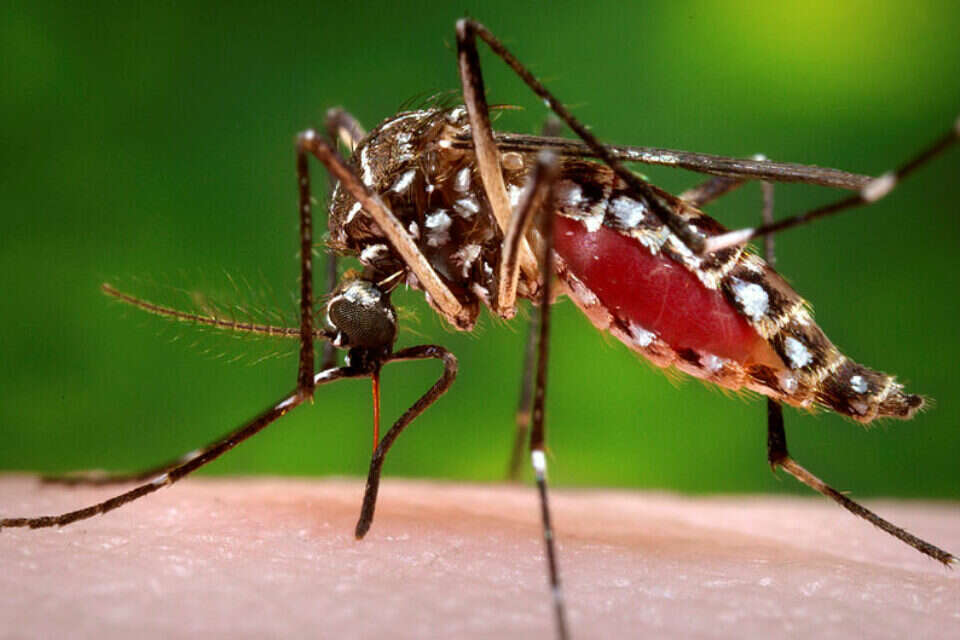Tiberias, anyone who has been to the northern city knows, is a hot and humid city, and like any city that has a large source of water and moisture, it also suffers from mosquito infestation. Perhaps this is why for nearly 25 years Rabbi Raphael Cohen, director of Tiberias' kashrut department, has been fighting mosquitoes in every possible way.
This is a battle that is hard to see how it can be won, but despite this, Rabbi Cohen seems determined to eradicate the threat. In 2009, the rabbi tried to equip the supervisors and restaurant owners with a special laser gun that was supposed to prevent the enemy from coming into contact with the food, but the initiative was unsuccessful, partly due to the objections of the business owners to pay for the initiative.
He is now fighting to introduce special stickers that are supposed to catch the pests, an initiative opposed by the Health Ministry.
The struggle is unusual and unusual. Although there is certainly a problem of eating mosquitoes, at the same time most rabbis do not wage such a stubborn and rigorous battle as Rabbi Cohen does. The rabbinate's regulations address the issue of flying penetration in general, and among other things recommend that the sellers work in cooperation with the various rabbinates and arrange measures to remove insects. If a mosquito or other flying bird has landed on the food, according to halacha, it should be noted, it is permissible to eat it. Only if the mosquito is definitely present in the food is it problematic to eat the food, and even in this case there are various restrictions.
Rabbi Cohen takes the subject to a whole other level. "I've been waging a tough battle for years so that restaurant owners don't fail people. Halacha explicitly states that eating such flying is considered eating six servings of pork." For this reason, Rabbi Cohen is very strict in his kashrut procedures on the subject. "Yesterday I sent a letter to an ice cream shop owner that I saw ten mosquitoes on one of his ice creams, that if I see something like this again I will remove his kosher certificate."
Rabbi Cohen recently found a new solution in the field of mosquito stickers, but those who opposed the issue were Health Ministry officials. The reason for the resistance is that the patches use a female hormone that attracts the males, which causes many more mosquitoes and cockroaches to arrive on the scene. Some, the Ministry of Health believes, will indeed become infected, but this will turn the closed kitchen into a focal point for attracting mosquitoes instead of keeping them away.
In a letter sent by Rabbi Cohen to the commander of the Northern District Health Bureau, he clarified that "in this season of penetration into the private sphere into homes and food businesses of various flights, and as is known that our holy Torah treated the prohibition of spikes and trampling with severity, and warned against the prohibition of flying six times, so that eating one flying bird is equal in severity to six servings of pork."
"In order to prevent a kosher and sanitary obstacle for the public, the Chief Rabbinate of Tiberias gave an order to hang sterile stickers designed to catch the flyers while they are still in the air and not fall into the food the public receives," he said, referring to the Health Ministry's prohibition, writing: "The stickers do not have any sanitary problem, and on the contrary, their reality prevents an obstacle and harms kashrut and public health. Please note that we will not be able to certify kashrut for a business that fails the public with more than a pig," he concluded, asking for permission to hang the stickers.
"It's a beautiful invention, the flying birds stick to the sticker and don't get to the food," says Rabbi Cohen. "Unfortunately, the Ministry of Health bans the stickers. I told them that the patches are sterile and that there is nothing in them that could harm health, but they disagree. Show me one clause in the Health Ministry's regulations that prohibits the stickers, but the objection still exists. I refuse to give up, I won't let there be mosquitoes in businesses in Tiberias."
The Ministry of Health said in response: "According to Health Ministry guidelines, professional pest control in food businesses must be carried out by a certified exterminator in order to keep pests and flying birds away. In addition, the insect traps in these businesses must be of a type that does not allow insects to exit from them. Stickers of the suggested type can only be placed in areas for storing packaged food and in various spaces of eateries where bulk food is not handled or served, since when using stickers there is a risk that the glue will weaken and the insects will be released into food or related equipment. If you want to put insect stickers in a dining room or dining area, make sure they are not near the serving line or self-service serving facilities."
Wrong? We'll fix it! If you find a mistake in the article, please share with us















